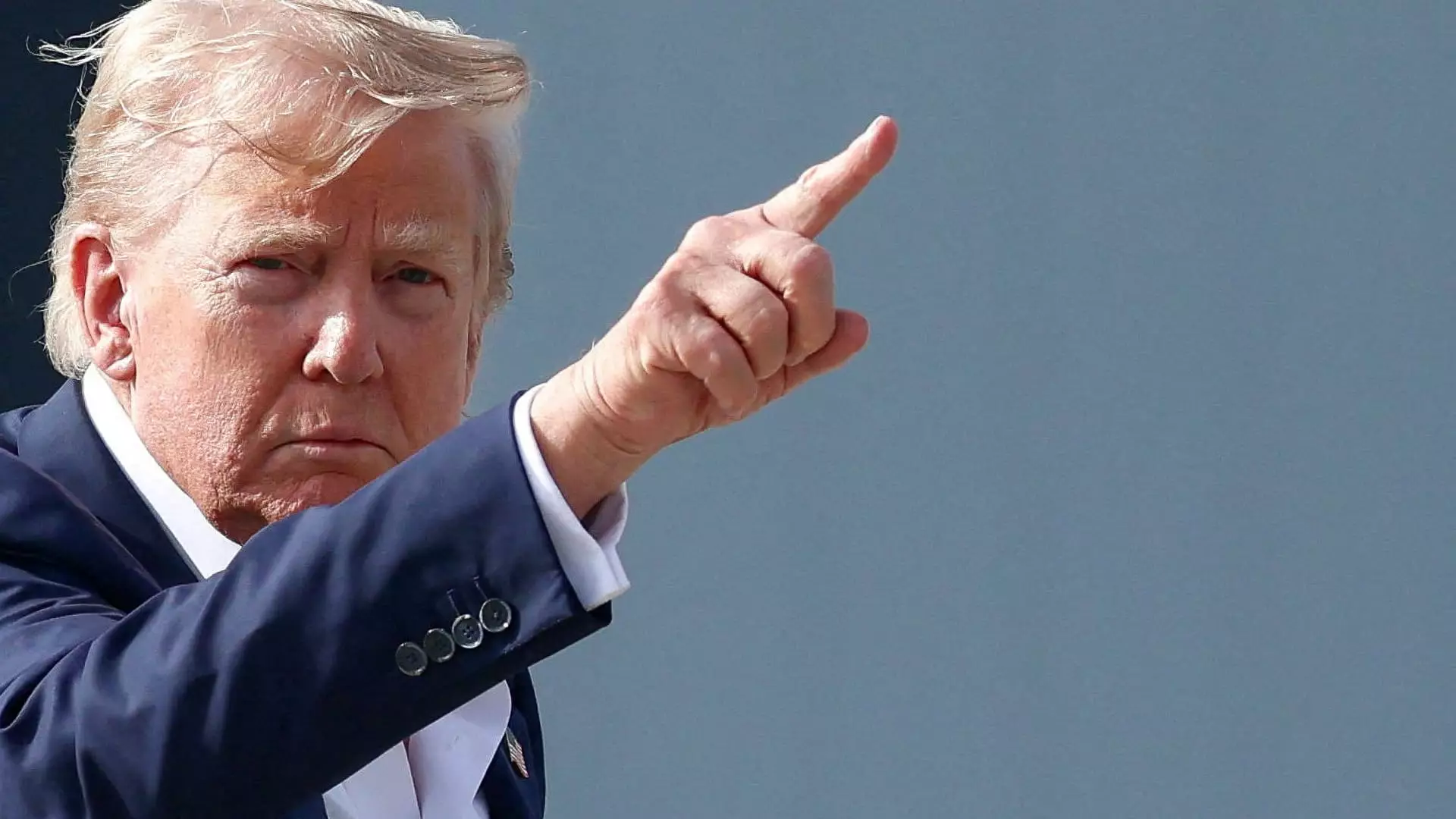In response to recent violent incidents in Washington, D.C., prominent figures like Donald Trump have called for the federal government to seize control of the city, claiming that local authorities are incapable of maintaining order. While concerns about rising violence are valid, the proposed solution — federal takeover — threatens to undermine the very fabric of local governance and community trust. The perception that heightened federal presence will swiftly solve crime oversimplifies complex urban challenges and risks creating a climate of authoritarian intervention rather than constructive reform.
Historically, federal control over cities, especially those with unique political and social dynamics like D.C., has often failed to produce meaningful safety improvements. Instead, it generates an environment conducive to overreach, eroding local accountability and citizen engagement. Crime statistics that show a 26% decrease from last year suggest that the city is not spiraling out of control but is experiencing fluctuations typical of any urban environment. Overreacting based on isolated violent incidents—and magnifying these incidents beyond context—ignores the nuanced and evolving nature of urban crime prevention, which relies heavily on community involvement, social services, and targeted police strategies.
The Risks of Militarization and Federal Overreach
The calls for federal takeover carry the dangerous potential of militarizing the city’s law enforcement apparatus. When authority shifts from local police to federal agencies, the risk of heavy-handed tactics increases, often at the expense of civil liberties. The suggestion that juvenile offenders as young as 14 should face adult trial raises serious ethical and legal concerns. Such measures could permanently scar the lives of young individuals, entrench patterns of mass incarceration, and foster mistrust between communities and authorities.
Furthermore, the narrative framing these incidents as a ‘youth crisis’ could be exploited to justify authoritarian measures rather than addressing the root issues—such as poverty, educational disparities, and lack of community resources—which are the real causes of youth violence. Recasting young offenders solely as criminals in need of harsh punishment neglects the importance of rehabilitation and community-based solutions. Excessive reliance on federal intervention risks transforming D.C. into a laboratory for punitive policies that disproportionately target marginalized populations.
The Dangerous Fallacy of ‘Law and Order’ Narratives
Political figures like Trump and supporters like Elon Musk have amplified fears, framing crime as an uncontrollable chaos that only a strong federal hand can contain. This narrative, however, is fundamentally flawed. It appeals to a visceral desire for security but ignores evidence suggesting that aggressive policing and harsh sentencing aren’t comprehensive solutions. Studies have repeatedly shown that overly punitive approaches often exacerbate social divisions, displace violence, and undermine the legitimacy of law enforcement agencies.
More critically, the focus on ‘crime waves’ as justification for federal takeovers diverts attention from the importance of long-term, community-centered reforms. It risks turning public discourse into a spectacle of fear, rather than a platform for rational debate about effective crime prevention strategies rooted in social justice and urban renewal. The emphasis on arrest statistics or sensational incidents fosters an illusion that merely increasing control will restore order, ignoring the complexities of urban insecurity.
The False Promise of a Quick Fix
The idea that federal intervention will promptly restore safety in Washington is a perilous misconception. Complex urban problems require nuanced, sustainable solutions—something that heavy-handed federal control seldom delivers. History shows that external, top-down approaches tend to overlook local realities, bypass community voices, and generate resistance rather than cooperation.
Instead of concentrating power in Washington’s bureaucratic machinery, the focus should be on empowering local institutions, fostering community dialogue, and investing in social infrastructure. Crime reduction is rarely about brute force; it depends on addressing the social determinants of violence, providing youth alternatives, and rebuilding trust among citizens and law enforcement. A quick federal takeover may give appearances of action but ultimately fosters dependency, erodes local autonomy, and risks escalating tensions between residents and authorities.
A Call for Balanced Action, Not Overreach
Addressing crime in Washington requires a pragmatic, balanced approach—one that recognizes the importance of local governance, community engagement, and social reform. The allure of a ‘law-and-order’ crackdown may be tempting for politicians eager to appear tough, but it sidesteps the deeper issues that fuel urban violence. Resetting the narrative around crime involves challenging simplistic notions of quick fixes and acknowledging that sustainable safety hinges on trust, social equity, and policies designed with community input.
Proposals for federal control under the guise of restoring order should be viewed skeptically. They threaten to diminish the city’s self-governance and could set a dangerous precedent for executive overreach nationwide. True security in Washington depends on strengthening local institutions, fostering cooperation among stakeholders, and implementing policies that focus on social justice—ideas that might not be as sensational but are undeniably more effective in the long run.


Leave a Reply